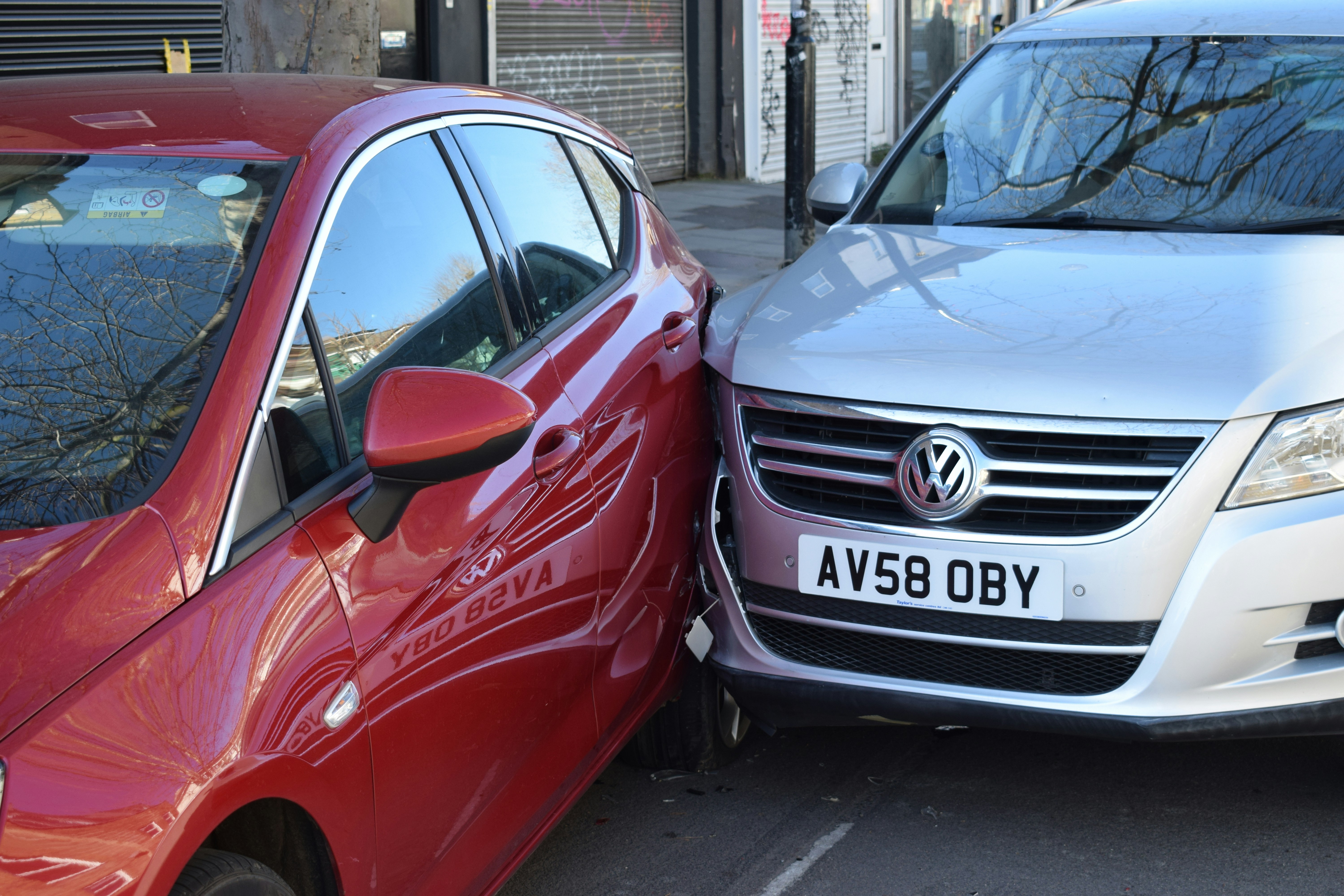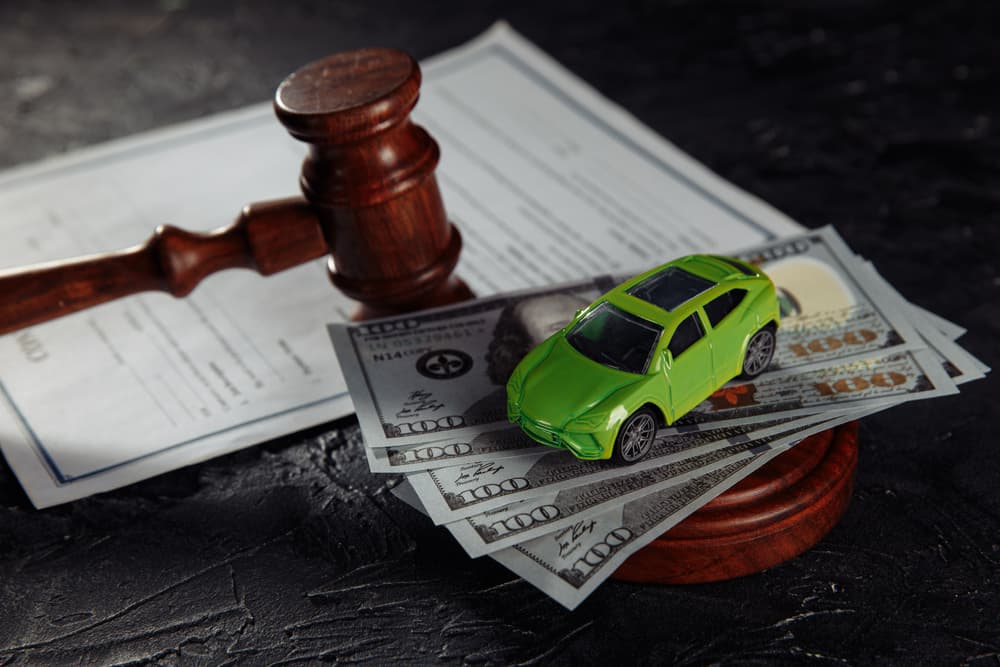Quick Answer
When you're dealing with the aftermath of a car accident, one question often looms large: Do I really need a lawyer for this?
The short answer is, not always.
Thanks to the rise of AI-powered claims tools like Mighty.com, many people can now handle simple cases quickly, efficiently, and without paying expensive legal fees.
But there are still situations where a skilled attorney is not only helpful, but essential.
In this guide, we’ll explore when legal help is necessary, what counts as a minor accident, your legal responsibilities after a crash, and how new tools are changing the game.
What You Should Know About Minor Car Accidents
Most crashes in the U.S. are what insurers call “minor”. Low speed collisions involving minimal damage and no significant injuries.
Common examples include:
- Rear-end bumps in traffic
- Scrapes while parking
- Fender benders at junctions or roundabouts
In many of these cases, there’s little to no injury, the damage is cosmetic, and both drivers have active insurance.
That makes it relatively easy to file a claim, especially with help from an AI claims helper.
Still, minor accidents can escalate.
Whiplash might not appear until a day or two later. A small dent could hide frame damage.
And if fault is disputed or the other driver is uninsured, things can get complicated fast.
Legal Requirements for Reporting Car Accidents — Even Minor Crashes
Whether or not you hire an attorney, you must follow state laws around reporting car accidents.
Each state has its own thresholds, but here are some general rules:
- In most states, you must report an accident to the police if there is an injury, death, or property damage exceeding a set dollar amount (often $500–$1,000).
- Failure to report can lead to fines, license suspension, or legal trouble down the line, especially if injuries are discovered after the fact.
Even if you’re unsure whether it’s necessary, it’s smart to report the accident to both your insurer and the police.
A police report helps establish facts and timelines, which will matter later if a claim is disputed.
When Is an Accident Considered Minor?
There’s no universal definition, but insurers and attorneys generally consider an accident “minor” if:
- No one was injured or only sustained soft-tissue injuries
- Vehicle damage is superficial and doesn’t affect functionality
- Both parties agree on what happened
- The costs are well below your state’s small claims limit (typically $2,500–$10,000)
In these cases, AI-powered claims platforms can walk you through the process.
They can help gather details, calculate damages, and even negotiate payouts based on policy limits and precedent.
They’re fast, low cost, and often more transparent than calling an adjuster.
But if any of the following apply, you’re not in minor territory anymore:
- You suffered any physical or emotional injury
- The other driver is uninsured or underinsured
- Fault is contested
- There are multiple vehicles or pedestrians involved
- There’s evidence of DUI, reckless driving, or hit-and-run
That’s when you should consider speaking with a car accident attorney.
Common Causes of Car Accidents
Understanding how accidents happen helps you assess risk and decide how complex your case might be.
Here are some of the most common causes and how they affect your claim:
1. Distracted driving
Whether it’s texting, adjusting the GPS, or eating at the wheel, distraction is one of the top causes of collisions.
If distraction caused your crash, it could influence fault and increase your chances of getting a settlement. It may require gathering phone records or dashcam evidence.
2. Speeding
Speeding doesn’t just increase the force of impact, it complicates liability.
Police reports and skid marks become crucial. AI claim tools can help you submit evidence, but an attorney may need to step in to contest insurance interpretations.
3. Impaired driving
If alcohol or drugs were involved, even in small amounts, the legal implications multiply.
DUI cases can affect criminal and civil liability and victims of drunk drivers may be entitled to higher compensation, including punitive damages.
These cases typically require a lawyer.
4. Weather and road conditions
Snow, fog, or potholes can cause accidents, but fault isn’t always clear.
Was the local council responsible for road maintenance? Should the driver have slowed down?
A nuanced investigation might be needed.
5. Mechanical failure
Brakes fail. Tires blow out. If a defective car part caused or worsened your accident, you might have a product liability case.
That’s beyond what AI tools can handle, you’ll need an attorney.
Services an Accident Lawyer Can Provide
A good car accident lawyer brings more than legal advice. They add pressure, protection, and expertise when things get complicated.
Here’s what they offer:
1. Case evaluation and strategy
They’ll assess the strength of your claim, estimate potential compensation, and advise you on what to do (and not do) during the process.
2. Dealing with insurers
Insurers don’t always play fair. A lawyer can take over communication, ensure you’re not lowballed, and escalate claims when needed.
3. Collecting evidence
Attorneys know what to look for, CCTV, medical records, police reports, expert testimony. This is crucial if fault is disputed or your injuries worsen over time.
4. Negotiating settlements
Insurance companies often settle out of court. Lawyers know the numbers and tactics and how to push for the best result.
5. Taking legal action
If the insurer won’t budge or the at-fault driver was uninsured, a lawyer can represent you in court or help file a lawsuit within your state’s statute of limitations.
When an AI Claims Helper Is Enough
You don’t need to hire a lawyer if:
- The accident was clearly minor
- You weren’t injured
- The other driver admitted fault
- You’re comfortable using a claims app or online portal
- You understand your insurance policy
AI tools are especially helpful for:
- Uploading photos of the damage
- Calculating repair costs
- Filing paperwork
- Reviewing compensation estimates
- Keeping track of communication
So, Is It Worth Getting an Attorney?
It depends on your situation. If the accident was minor, there were no injuries, and everyone agrees on what happened, you probably don’t need a lawyer.
In fact, an AI claims helper like Mighty.com can make the process easier and faster than ever, without the expense or stress of hiring an attorney.
But if you’re injured, fault is unclear, or the stakes are high, don’t go it alone.
A qualified lawyer can protect your rights, deal with stubborn insurers, and help you get fair compensation.
Bottom line: Use AI tools when things are simple. Call a lawyer when they’re not.
Minor Car Accident FAQs
Do I need to report the accident to the police?
Yes, in most cases, you do need to report the accident to the police even if it seems minor. Each U.S. state has its own rules, but generally, you must report a crash if there are injuries, fatalities, or property damage above a certain dollar amount (often $500 to $1,000).
Some states require immediate reporting at the scene, while others allow you to file a written report within a few days.
Failing to report an accident can result in fines, license suspension, or difficulties when filing an insurance claim later. Even if the damage looks minor and no one seems hurt, it’s smart to report the incident.
Injuries like whiplash can appear days later, and having a police report can help establish what happened if the other driver changes their story or the insurer challenges your claim.
When in doubt, call the local non-emergency number or visit your state DMV website for guidance.
Do I need to let my insurance know about the accident?
Yes, you should always inform your insurance company about the accident even if it was minor or you weren’t at fault. Most policies include a clause that requires you to report any incidents within a specific time frame, which could be as short as 24–48 hours.
Failing to notify your insurer could result in denied claims later, even if you initially planned to pay for the damage yourself. Reporting the accident doesn't mean you're making a claim, it simply creates an official record.
This can protect you if the other driver later files a claim or if hidden injuries or vehicle damage emerge.
Your insurer can also guide you through next steps, including repairs, rental coverage, and liability concerns. If you're unsure, check your policy or call your provider’s claims line.
Transparency helps avoid complications and keeps your cover valid if things escalate later.
Do I need to visit a doctor even if I don't have or feel any injuries?
Yes, it's wise to see a doctor after a car accident, even if you feel fine. Many injuries, such as whiplash, soft tissue damage, or even concussions, may not show symptoms immediately.
Adrenaline can mask pain, and some issues may take hours or days to appear. A prompt medical checkup can catch injuries early and prevent complications later.
It also creates a medical record linked to the accident, which is crucial if you develop symptoms later and need to make an insurance claim. Without that documentation, insurers may argue your injury wasn’t related to the crash.
Even a quick visit to your GP or an urgent care clinic can provide peace of mind. If you’re worried about costs, check whether your insurance or the at-fault driver’s policy includes medical cover.
Bottom line: don’t wait for pain to appear. Get checked as a precaution. Your health and your claim may depend on it.
Do I need to hire an accident lawyer to handle my case?
You don’t always need to hire a lawyer, especially if the accident was minor, no one was injured, and the insurance process is straightforward.
In many simple cases, you can handle everything yourself or use an AI claims helper to guide you through filing and settlement.
However, if the situation is more complex, such as serious injuries, unclear fault, denied claims, or an uninsured driver, a lawyer can be extremely helpful.
They understand how to gather evidence, negotiate with insurers, and ensure you get fair compensation. Legal representation becomes even more important if the other party has hired a lawyer or if the case might go to court.
If you’re unsure, most personal injury lawyers offer free consultations and work on a no-win, no-fee basis. You lose nothing by asking, but you could miss out on compensation by not getting expert help when needed.
Should I accept the first settlement offer I receive?
It’s usually not a good idea to accept the first settlement offer from an insurance company. Initial offers are often lower than what your claim may truly be worth.
Insurers aim to settle quickly and reduce payouts, especially if you haven’t yet seen a doctor or fully assessed the damage.
Accepting early can leave you out of pocket if injuries worsen or repairs cost more than expected.
Instead, take time to review the offer carefully. Get a medical evaluation, repair estimates, and, if needed, a second opinion from a claims expert or personal injury lawyer. You’re allowed to negotiate and often should.
If you're using an AI claims assistant, it may help identify whether the offer aligns with your damages. If not, it can guide you through disputing it.
Don’t rush. Once you accept, you usually waive the right to pursue more compensation later. Make sure the offer covers everything.
Can I file a car accident settlement claim on my own?
Yes, you can file a car accident settlement claim on your own, especially if the accident was minor, there were no serious injuries, and liability is clear. Many insurance companies even offer online tools or mobile apps that make the process straightforward.
You’ll need to gather key information such as photos of the damage, a copy of the police report, repair estimates, and medical records if applicable. Once you submit your claim, you may be contacted by an adjuster who evaluates your case and offers a settlement.
If you're confident in the value of your claim and feel comfortable negotiating, handling it yourself can save time and legal fees.
If the claim becomes complicated, for example, the other driver disputes fault or your injuries worsen, you may want to consult a personal injury lawyer or use an AI claims assistant to guide you through the process more effectively.
When do I need to hire a lawyer?
You should consider hiring a lawyer if your car accident involves serious injuries, unclear fault, an uninsured driver, or a low or denied settlement offer from the insurance company.
Legal help is also valuable if the accident involved multiple vehicles, a commercial driver, or if you're being blamed unfairly.
These situations can quickly become complex, and insurers may try to minimise payouts or shift liability. A lawyer can protect your rights, gather evidence, handle negotiations, and make sure you’re not pressured into accepting less than you deserve.
You should also speak to a lawyer if your injuries may require ongoing treatment or affect your ability to work. Future medical costs and lost wages are often undervalued in early settlement offers.
Many lawyers offer free consultations and work on a no-win, no-fee basis, so there's little risk in getting advice. If the stakes are high, legal support is often worth it.
What is the role of a lawyer in a car accident claim?
A lawyer plays a key role in protecting your interests during a car accident claim, especially if the case involves injury, disputed fault, or complex insurance issues.
Their job is to make sure you’re treated fairly and compensated fully for medical bills, lost income, vehicle damage, and pain and suffering. They begin by investigating the accident, gathering evidence like police reports, medical records, and witness statements.
They also handle communication with insurance companies, so you don’t have to deal with pressure tactics or confusing paperwork.
A lawyer can calculate the true value of your claim and negotiate a fair settlement. If negotiations fail, they can take your case to court and represent you throughout. Their legal knowledge helps you avoid mistakes that could reduce your payout.
In short, they ensure your voice is heard and that you receive what you’re legally entitled to, especially when insurers try to limit their costs.
What damages am I entitled to after a car accident?
After a car accident, you may be entitled to several types of damages, depending on the severity of the incident and the losses you’ve experienced.
They generally fall into two categories: economic and non-economic damages.
Economic damages include measurable financial losses such as medical bills, vehicle repairs, lost wages, and future medical costs if your injuries require ongoing care. You may also claim for out-of-pocket expenses like transportation to appointments or hiring help at home.
Non-economic damages cover harder-to-quantify losses, such as pain and suffering, emotional distress, and loss of enjoyment of life, especially if the accident impacts your long-term wellbeing.
In some cases involving reckless or drunk driving, punitive damages may also apply to punish the at-fault party. To claim these, you’ll need documentation like medical records, receipts, and evidence of income loss. If you're unsure what you're entitled to, a claims assistant or legal expert can help calculate your full compensation.
Know Your Claim’s Worth—and Settle It
Serious injury or no injury at all, move your case forward instantly from your phone.
Thank you for submitting your information.

About the author
Joshua is a lawyer and tech entrepreneur who speaks and writes frequently on the civil justice system. Previously, Joshua founded Betterfly, a VC-backed marketplace that reimagined how consumers find local services by connecting them to individuals rather than companies. Betterfly was acquired by Takelessons in 2014. Joshua holds a JD from Emory University, and a BA in Economics and MA in Accounting from the University of Michigan.






